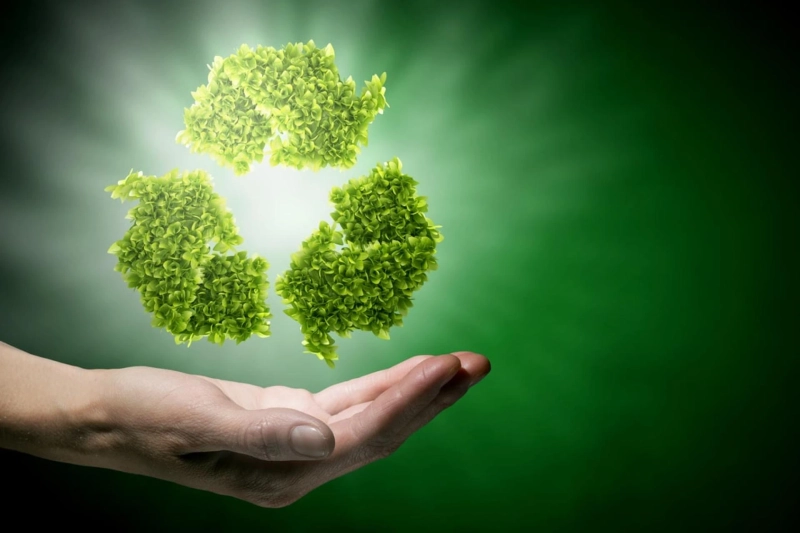In recent years, the recycling industry has undergone a significant transformation, driven by technological advancements, environmental concerns, and changing consumer behaviors. As the world grapples with the challenges of waste management and sustainability, innovative trends are emerging to reshape the way we recycle and manage our resources.
In this article, we'll explore some of the latest trends that are revolutionizing waste management and propelling the recycling industry forward.
Circular Economy Initiatives: One of the most significant trends in the recycling industry is the shift towards a circular economy model. Unlike the traditional linear economy, which follows a "take-make-dispose" approach, the circular economy aims to keep resources in use for as long as possible, maximizing their value and minimizing waste. Companies are increasingly adopting circular economy principles by designing products for durability, reuse, and recycling, thus reducing their environmental footprint.
Technological Innovations: Technology plays a crucial role in driving efficiency and effectiveness in waste management processes. Advanced sorting systems equipped with artificial intelligence and machine learning capabilities enable more accurate and efficient sorting of recyclable materials, resulting in higher recycling rates and reduced contamination. Furthermore, innovations such as smart bins and IoT-enabled waste management solutions are revolutionizing collection and monitoring processes, optimizing resource allocation and reducing operational costs.
Plastic Recycling Advancements: With growing concerns about plastic pollution, there's a heightened focus on improving plastic recycling technologies and infrastructure. Innovations such as chemical recycling, which converts plastic waste into new materials or feedstocks, offer promising solutions for recycling challenging plastics that are not easily recyclable through traditional methods. Additionally, advancements in mechanical recycling technologies are making it possible to recycle a wider range of plastics while maintaining material quality and reducing environmental impact.
Collaborative Partnerships: Collaboration among stakeholders across the recycling value chain is essential for driving progress in waste management. Governments, businesses, non-profit organizations, and consumers are increasingly working together to develop and implement sustainable solutions. Collaborative initiatives such as extended producer responsibility (EPR) programs, where manufacturers take responsibility for the end-of-life management of their products, are gaining traction worldwide, encouraging product design for recyclability and promoting circularity.
Consumer Education and Engagement: As awareness of environmental issues grows, consumers are becoming more conscious of their consumption habits and the environmental impact of their choices. Recycling education and outreach programs play a vital role in empowering consumers to make informed decisions and adopt sustainable behaviors. Brands and organizations are leveraging social media, educational campaigns, and interactive experiences to engage and educate consumers about recycling best practices, waste reduction, and the importance of
recycling industry trends.
Waste-to-Energy Solutions: In addition to traditional recycling methods, waste-to-energy technologies are emerging as a viable solution for managing non-recyclable waste streams. Processes such as anaerobic digestion and incineration with energy recovery convert organic waste and residual materials into renewable energy sources, reducing landfill volumes and greenhouse gas emissions. By integrating waste-to-energy solutions into waste management systems, communities can achieve greater resource efficiency and energy independence while mitigating environmental impacts.
Emphasis on Quality over Quantity: Quality has become a primary focus in the recycling industry, with stakeholders prioritizing the production of high-quality recycled materials that meet market demand and regulatory requirements. Contamination remains a significant challenge in recycling, leading to reduced material quality and increased processing costs. As a result, there's a growing emphasis on improving contamination prevention measures, enhancing sorting technologies, and educating consumers to ensure cleaner recyclable streams and higher-quality recycled products.
Investment in Infrastructure: To support the growth of recycling and waste management initiatives, there's a need for significant investment in infrastructure development and modernization. Governments, private sector investors, and industry stakeholders are investing in upgrading recycling facilities, expanding collection and processing capacities, and improving transportation and logistics networks. These investments are critical for enhancing the efficiency, reliability, and resilience of recycling infrastructure and meeting the growing demand for sustainable waste management solutions.
Conclusion:
In conclusion, the recycling industry is undergoing a remarkable transformation driven by innovation, collaboration, and sustainability. From embracing circular economy principles to leveraging advanced technologies, stakeholders across the recycling value chain are working together to create a more sustainable and resilient waste management system. By staying informed about the latest trends and embracing best practices, we can all contribute to the recycling revolution and build a cleaner, greener future for generations to come.


